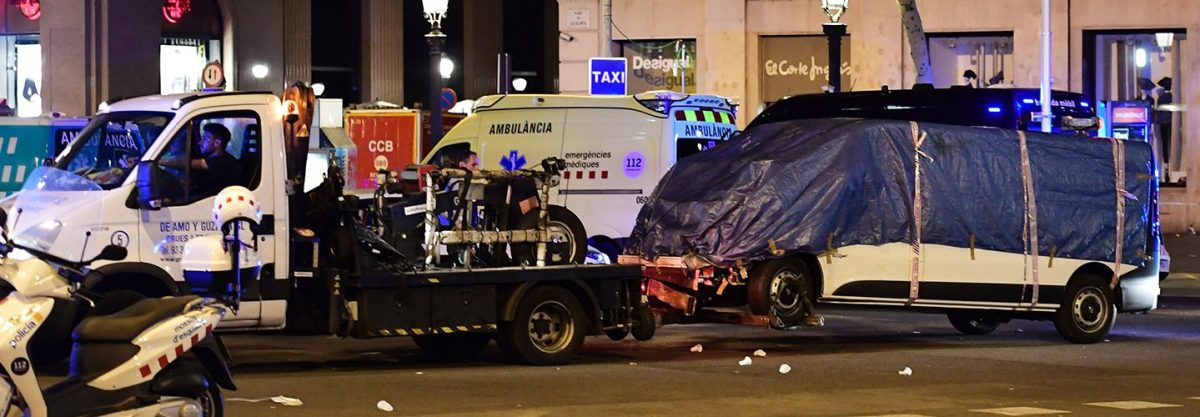Though the automotive terrorist attacks of the past two years are fewer than accidents, they are a constant reminder that any driver can use the vehicle as a deadly weapon. The New York Times writes that it is a blow to normal social conduct: “that people are essentially safe when they walk down the street, relying on drivers to at least try to follow the rules.”
On Thursday, a car plowed into a crowd of people in one Barcelona’s most famous thoroughfares killing at least 13 and wounding 80. Last year a car drove through France’s Bastille Day celebration in Nice, killing 86 people and injuring over 450.
The Times writes that years of research have found that fear can eventually “divide and poison” societies. It can even cause them to abandon key values. Vehicle attacks could heighten that effect because people are using one of the most ordinary and common objects of everyday life to create terror.
One study found that when people who are usually open and trusting towards outsider feel they are at risk of a terror attack, they are more likely to support harsher, even authoritarian, laws and policies. They are more willing to “sacrifice civil liberties in exchange for perceived safety,” writes the Times.
A study from the Chatham House, a British Research organization, found that over half of Europeans support a ban on immigration from Muslim-majority countries. Other research shows that people become more attached to a part of their identity if they feel like it is under attack — like their religion, nationality or race. This promotes “outgrouping” which is fear of outsiders and “desire to control or punish them,” according to the Times. When terrorist attacks target Westerners, that leads to outgrouping behaviors from the Westerners.
Often, after terrorist attacks — which are designed to create widespread terror and spread fear the fear that this could happen to you or someone you love — people look for ways to answer those questions in a reassuring way, such as avoiding flying, or convincing yourself your city isn’t high profile.
The risks of being killed in a vehicle attack are low. Car accidents kill 30,000 to 40,000 people per year in the United States, and worldwide terrorist attacks using cars have killed a “tiny fraction of that number.” Even so, the Times writes, cars and buses and trucks are all around us, and there is no real way to avoid them, like how many people could avoid flying after 9/11.
The research suggests that by undermining public trust and unity and creating fear, these attacks can cause deep and lasting harm. Such attacks are already having an impact on Western policies, in “subtle but unmistakable ways” and people are only growing more conscious of the “ever-present threat posed by ordinary objects.”
This article was featured in the InsideHook newsletter. Sign up now.
























